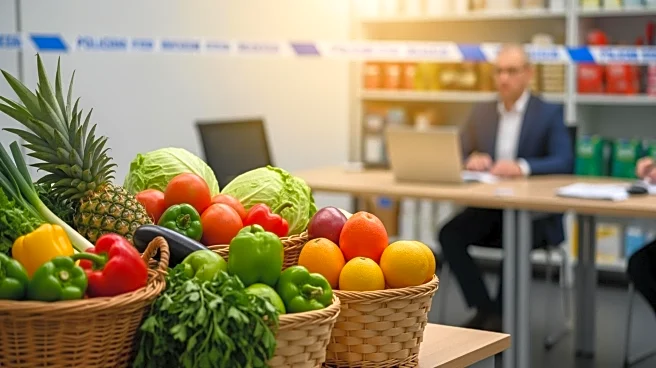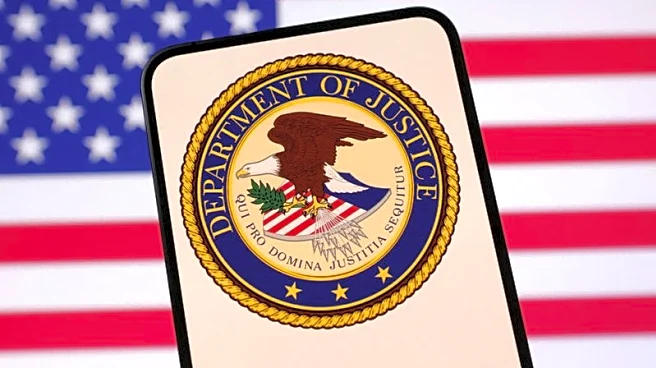What's Happening?
As the November 1 cutoff for the Supplemental Nutrition Assistance Program (SNAP) approaches, over 40 million Americans face the risk of losing food aid due to the ongoing government shutdown. This situation
has prompted several retailers to increase their charitable efforts to combat food insecurity. Texas-based H-E-B has pledged $6 million to support food banks and Meals on Wheels programs across the state. DoorDash plans to deliver 1 million meals for free through its Project DASH initiative and waive delivery fees for SNAP recipients at various grocery stores. BJ’s Wholesale Club is donating over $1.2 million to local organizations in 17 states and Washington, D.C., with funds directed by employee nominations.
Why It's Important?
The looming SNAP cutoff could exacerbate food insecurity for millions of Americans, highlighting the critical role of private sector contributions in addressing immediate needs. Retailers like H-E-B, DoorDash, and BJ’s are stepping in to fill the gap left by government aid, demonstrating corporate social responsibility. These efforts not only provide immediate relief but also underscore the importance of public-private partnerships in tackling systemic issues like hunger. The actions of these companies may inspire other businesses to contribute, potentially mitigating the impact of the SNAP cutoff on vulnerable populations.
What's Next?
If the government shutdown continues, the pressure on food banks and charitable organizations will likely increase, necessitating further support from both the private sector and government. Retailers may need to sustain or even expand their contributions to prevent a worsening of food insecurity. Additionally, advocacy groups may intensify efforts to push for a resolution to the government shutdown to restore SNAP benefits. The situation could also lead to broader discussions on the sustainability of food aid programs and the need for long-term solutions to food insecurity.











